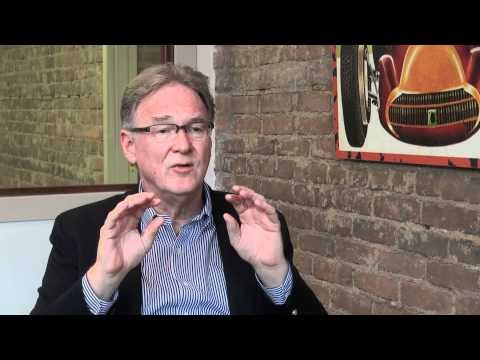Vale An Emerging Sustainability Leader
Post on: 16 Март, 2015 No Comment

Vale (pronounced vall’ee) is a Brazilian mining and metals company. Vale is the world’s largest iron ore producer, responsible for 15 percent of all the iron produced in the world. It is also the second largest manganese producer in the world, and a global giant in the nickel, copper, aluminum, coal, potash and fertilizer markets. Vale owns considerable railroad and shipping assets, and it has major energy businesses including nine hydroelectric plants. Vale is turning its attention to innovation and environmental stewardship as new drivers of growth and as a lever to deepen its commitment to sustainability.
Brazilian companies are no strangers to environmental sustainability reporting and rankings. According to the Global Reporting Initiative (GRI), Brazil has the world’s third highest number of sustainability reporting companies, including Vale. Vale was a winner of the 2010 GRI -sponsored Readers’ Choice Awards for sustainability reporting. Vale is the most sustainable mining company in Latin America, according to the annual sustainability rankings by Management & Excellence and LatinFinance. Vale is also the first mining company to join the São Paulo Stock Exchange’s ISE Business Sustainability Index. The SAM-Dow Jones Sustainability Index scores Vale highly in the mining sector, although it has not yet achieved inclusion in its World Index.
Vale is also a target of criticism from certain environmental activists. In 2012, Vale joined Barclays Bank and TEPCO as recipients of the title for “worlds most evil company” by Public Eye. Environmental NGOs have been strongly critical of the expansion of hydroelectric power from the Amazon River basin and expansion of mining operations into the Brazilian rain forests. Deserved of the criticism, or not, Vale faces up to these challenges directly and transparently.
Vale can be included among a group of emerging giants and corporate sustainability leaders from, what Boston Consulting Group (BCG) labels, “rapidly developing economies”. This group of companies are adapting sustainability best practices to their own local challenges and culture. According to BCG[1]. these elite companies demonstrate farsighted leadership to change mindsets and operating practices among their local and regional peers. BCG’s research showcases these emerging giants are particularly adept at:
- Proactively turning constraints into opportunities through innovation;
- Embedding sustainability in their company culture; and,
- Actively shaping their business environments.
Vale’s actions are guided by its Sustainable Development Policy, which is composed of three pillars: being a Sustainable Operator, a Catalyst for Local Development and a Global Agent for Sustainability.
Vale’s adoption of sustainability reporting using the GRI and also through reporting to the Carbon Disclosure Project are examples of catalyzing corporate behavior. Vale secured a top position in the 2010 and 2011 Carbon Disclosure Project’s Carbon Disclosure Leadership Index, the only Latin American company to do so. Besides acting directly to manage its own greenhouse gas emissions, Vale engages its suppliers and raises their awareness through training to support service provider companies in structuring and enhancing best practices in emissions management and in developing mitigation actions.
Vale also invests heavily in its markets to spur homegrown improvements and to match local operating conditions. That’s important because employees and customers are far more likely to accept improvements adapted to the local context. In 2011, Vale committed over $457 million to social investments and projects. In 2012, the company increased investments in social and environmental commitments to over $ 1.6 billion. Most of the company’s voluntary spending (94%) is used for environmental management. Vale pioneered the use of truckless on-site systems and the use of modular pre-construction at its mines to limit road construction and the potential environmental damage from on-site construction of ore crushing and processing facilities.
Vale invests in innovation and technology to develop the mining of the future. Vale has begun a pioneering, industrial scale project at its Brazilian iron mines, which could change the operating model for this activity across the world. Vale’s technology may help to extend the lifespan of mines and reduce their environmental impact as it enables pig iron to be produced from iron ore of different grades and quality and avoid the use of tailings ponds. Another new technology developed entirely by Vale is revolutionizing the way water is used in the processing or ore. There are no records of this type of technology having been used before. Besides cutting annual water consumption by the equivalent of that used by a city of 430,000 inhabitants (19.7 million m³ per year), the technology also reduces annual power use by more than 18,000 MW and means that tailings dams do not have to be built.
The company’s capital projects are not only limited to within Brazil or Latin America. In June of 2012, Vale broke ground on its $2 billion Canadian Dollars “Clean AER Project ”, one of the largest environmental investments ever made in Ontario. This project. which stands for “Atmospheric Emissions Reduction”, will reduce by 70 percent the sulphur dioxide emissions from current levels, as well as dust and metals emissions a further 35 to 40 percent at its Sudbury nickel smelter.
Vale is using its expertise gained from managing environmentally sensitive operations and developing complex, global distribution systems to become an innovation and sustainability champion. They are a great example of a best practice and a company to watch now and into the future.
[1] “Potential Impacts of the New Sustainability Champions: How Management Can Change the World” (2012), BCG.perspectives, Michael, D. Wagner, K. Haanæs, K. Goh, E. Vismans,D. Jurgens, J. and Nazaruk, L.














